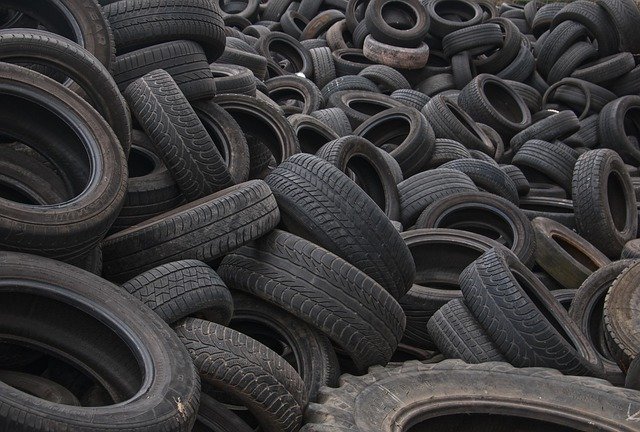Waste Management Careers: Paths, Growth & Impact Today
Discover rewarding career paths in waste management and how this field supports sustainability, public health, and the circular economy. From recycling coordination to environmental engineering and hazardous waste handling, learn required skills, certifications like SWANA, advancement routes, and the positive job outlook in this growing green sector.

Introduction: The waste management sector is a vital component of environmental protection and sustainable development. As populations expand and urban areas densify, effective waste handling becomes increasingly important. This article outlines key roles within the industry, the qualifications employers look for, how waste management advances sustainability, career progression opportunities, common challenges, and the future job outlook.
Key Roles in Waste Management: 1. Recycling Coordinators Recycling coordinators design and run community and institutional recycling programs. They teach proper sorting practices, monitor recycling rates, and implement campaigns to boost participation and material recovery.
-
Environmental Engineers Environmental engineers create and manage waste systems, ensuring processes are safe, efficient, and have minimal environmental impact. They may design treatment facilities, leachate systems, or processes to optimize resource recovery.
-
Hazardous Waste Technicians These technicians are trained to identify, handle, transport, and dispose of dangerous substances following strict safety and regulatory protocols. Their work minimizes risks to people and ecosystems.
-
Landfill Managers Landfill managers supervise daily operations at disposal sites, enforce environmental compliance, maintain records, and apply best practices for containment, methane control, and site rehabilitation.
What qualifications are needed for a career in waste management? While requirements differ by position and seniority, typical qualifications include: - Education: Some roles accept a high school diploma, but many technical and professional positions require a bachelor’s degree in environmental science, engineering, or a related discipline. - Technical Skills: Familiarity with waste treatment technologies, environmental monitoring tools, and data analysis is often essential. - Certifications: Industry credentials—such as SWANA certification—can strengthen resumes and demonstrate specialized expertise. - Physical Fitness: Collection and handling jobs demand stamina and strength; field roles may involve outdoor, physically active work. - Communication Skills: Clear communication is needed to collaborate with teams, explain compliance requirements, and educate the public.
How the industry contributes to sustainability: Waste management drives environmental benefits and resource efficiency through: - Resource Recovery: Recycling and composting programs reclaim materials, reducing the need for virgin resources. - Energy Generation: Waste-to-energy facilities convert organic and other wastes into electricity or heat, supplementing renewable energy supplies. - Pollution Prevention: Proper collection, treatment, and disposal prevent contamination of soils, waterways, and air. - Greenhouse Gas Reduction: Capturing landfill methane and optimizing waste processes reduce emissions that contribute to climate change. - Circular Economy Support: By promoting reuse, redesign for recyclability, and waste reduction strategies, the industry advances circular economy principles.
Career growth opportunities in waste management: The sector offers clear progression and diverse pathways: - Move from entry-level roles into supervisory positions like team lead or shift supervisor. - Advance to managerial posts overseeing larger operations or multiple facilities. - Specialize in areas such as hazardous materials management, permitting, or environmental compliance. - Shift into consulting to advise governments and businesses on waste strategy and regulatory adherence. - Launch entrepreneurial ventures in recycling, collection services, or innovative waste-to-resource technologies.
Challenges faced by waste management professionals: Professionals often confront several industry-specific difficulties: - Regulatory Compliance: Navigating evolving environmental laws and permit requirements can be complex and time-consuming. - Public Perception: Overcoming stigma and engaging communities in proper waste practices requires outreach and education. - Rapid Technological Change: Staying current with automation, data analytics, and new treatment methods demands ongoing learning. - Health and Safety Risks: Handling hazardous materials and operating heavy equipment pose safety hazards that require strict controls. - Economic vs. Environmental Trade-offs: Finding solutions that are both cost-effective and environmentally responsible is an ongoing balancing act.
Job outlook for waste management careers: Prospects in the field are favorable due to several trends: - Rising Environmental Awareness: Greater public and corporate focus on sustainability increases demand for skilled workers. - Strong Regulatory Drivers: Tighter environmental rules create roles for compliance, monitoring, and permitting experts. - Technological Integration: Adoption of sensors, automation, and analytics opens opportunities for specialists in smart waste systems. - Urban Growth: Expanding cities need efficient waste solutions, fueling demand for planners, operators, and technicians. - Circular Economy Momentum: Initiatives to design out waste and increase recyclability create new jobs in product stewardship and waste reduction.
Conclusion: Waste management provides meaningful, varied career paths for people committed to environmental protection and sustainability. From hands-on collection and hazardous waste handling to technical design, program coordination, and entrepreneurship, the field offers opportunities for professional growth and real-world impact. As environmental priorities intensify, careers in waste management will remain essential and in demand.






